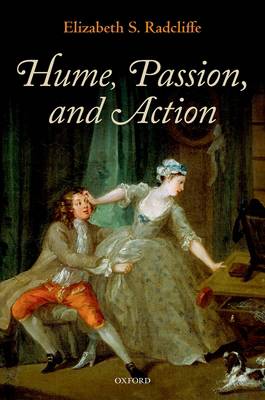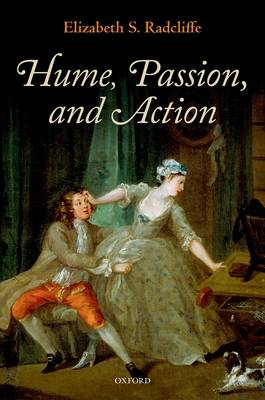
- Retrait gratuit dans votre magasin Club
- 7.000.000 titres dans notre catalogue
- Payer en toute sécurité
- Toujours un magasin près de chez vous
- Retrait gratuit dans votre magasin Club
- 7.000.0000 titres dans notre catalogue
- Payer en toute sécurité
- Toujours un magasin près de chez vous
Description
David Hume's theory of action is well known for several provocative theses, including that passion and reason cannot be opposed over the direction of action. Elizabeth S. Radcliffe defends an original interpretation of Hume's views on passion, reason, and motivation which is consistent with other theses in Hume's philosophy, loyal to his texts, and historically situated. She challenges the now orthodox interpretation of Hume on motivation, presenting an alternative that situates Hume closer to "Humeans" than many recent interpreters have. Part of the strategy is to examine the thinking of the early modern intellectuals to whom Hume responds. Most of these thinkers insisted that passions lead us to pursue harmful objects unless regulated by reason; and most regarded passions as representations of good and evil, which can be false. Understanding Hume's response to these claims requires appreciating his respective characterizations of reason and passion. The author argues that
Hume's thesis that reason is practically impotent apart from passion is about beliefs generated by reason, rather than about the capacity of reason. Furthermore, the argument makes sense of Hume's sometimes-ridiculed description of passions as "original existences" having no reference to objects. The author also shows how Hume understood morality as intrinsically motivating, while holding that moral beliefs are not themselves motives, and why he thought of passions as self-regulating, contrary to the admonitions of the rationalists.
Hume's thesis that reason is practically impotent apart from passion is about beliefs generated by reason, rather than about the capacity of reason. Furthermore, the argument makes sense of Hume's sometimes-ridiculed description of passions as "original existences" having no reference to objects. The author also shows how Hume understood morality as intrinsically motivating, while holding that moral beliefs are not themselves motives, and why he thought of passions as self-regulating, contrary to the admonitions of the rationalists.
Spécifications
Parties prenantes
- Auteur(s) :
- Editeur:
Contenu
- Nombre de pages :
- 256
- Langue:
- Anglais
Caractéristiques
- EAN:
- 9780199573295
- Date de parution :
- 21-08-18
- Format:
- Livre relié
- Format numérique:
- Genaaid
- Dimensions :
- 236 mm x 165 mm
- Poids :
- 557 g

Les avis
Nous publions uniquement les avis qui respectent les conditions requises. Consultez nos conditions pour les avis.






